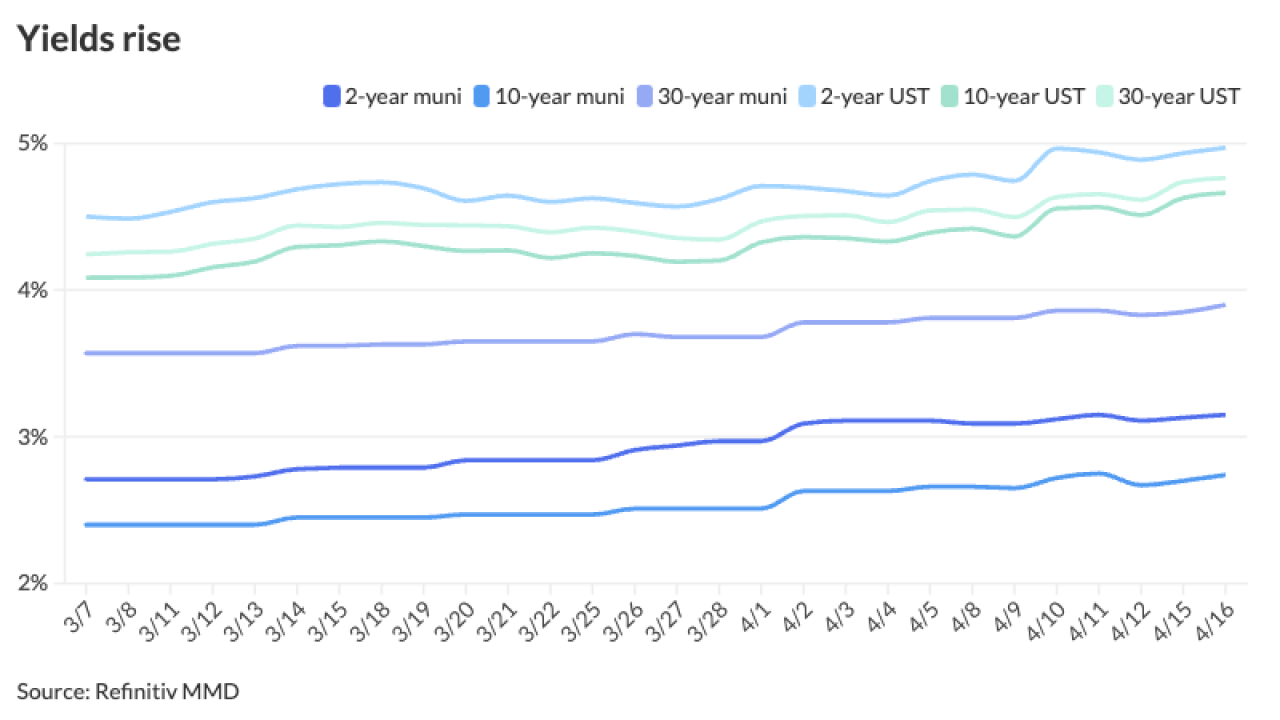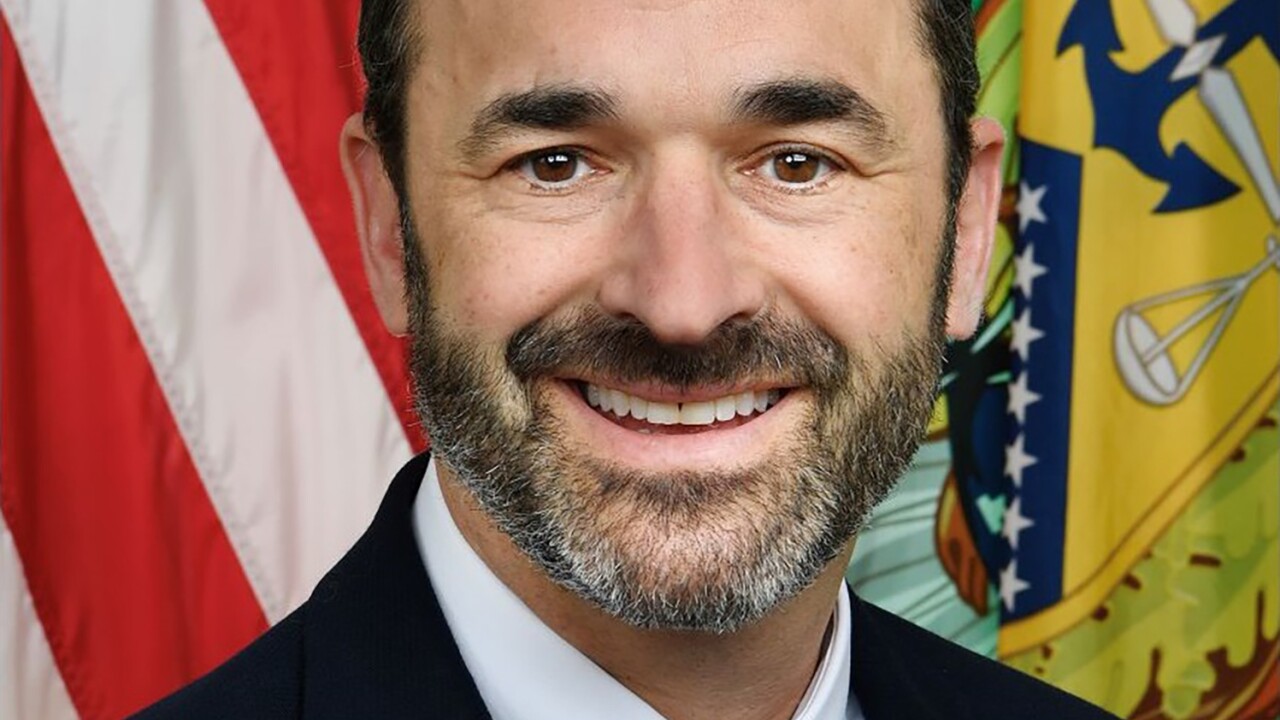
WASHINGTON – House Republicans released a blueprint for tax reform that left some muni groups and experts concerned that the tax-exempt status of municipal bonds may be in jeopardy.
The 35-page plan, which at no point directly references municipal bonds, was released Friday by House Speaker Rep. Paul Ryan, R-Wis., under his "A Better Way" agenda. The blueprint includes several significant, though not unexpected reforms to the current tax code: A reduction of the corporate income tax rate to 20%; a reduction of the current seven-bracket individual income tax rate to three brackets with a top rate of 33%; and a repeal of the Alternative Minimum Tax for both corporations and individuals.
Because the blueprint doesn't mention munis directly but does mention repealing unnamed special-interest provisions, Jessica Giroux, general counsel and managing director for Bond Dealers of America, said the organization was concerned that munis' tax exemption could be included.
Republicans have proposed several tax reform plans that limit or eliminate exclusions like tax-exempt bond interest in an effort to lower tax rates and broaden the tax base in the past.
"It's definitely a real concern," Giroux said. "The general statements they're making now are going to appeal to a lot of people, but we're going to be more concerned with the details. We can glean that tax exemption is not safe."
She said BDA will continue its effort to educate both staff and members of Congress about the importance and value in maintaining the tax-exempt status of municipal bonds.Emily Brock, director of the Government Finance Officers Association's federal liaison center, said her organization also noted the lack of any explicit reference to munis in Friday's blueprint. She said that GFOA will continue to stress the importance of their tax-exempt status to lawmakers.
"I hope not," Brock said of any potential loss of tax exemption. "As this plan starts to materialize, we'll continue to maintain the importance of municipal bonds and the partnership between federal and state governments."
Rep. Kevin Brady, R-Tex., who chairs of both the House Ways and Means Committee and its Task Force on Tax Reform, said Friday that lawmakers will continue to seek input from taxpayers and lobbying groups ahead of a formal tax reform bill Republicans hope to introduce in 2017. He said the blueprint will continue to be amended to help achieve a "fairer and simpler" tax code.
"Tax reform only happens once in a generation," Brady said. "House Republicans believe it is time for a change."
The plan would reduce the corporate rate to 20% from 35%, which Brady said would encourage businesses to remain in the United States rather than relocate overseas. It would also condense the current seven-bracket individual income tax rate with a top rate of 39.6% into three brackets of 12%, 25% and 33%, and require taxpayers to submit returns on a postcard.
Like the Tax Reform Act of 2014, the legislation introduced by former Ways and Means Committee chairman Dave Camp, R-Mich., the current proposal would repeal the corporate and individual alternative minimum taxes (AMT).
This, Giroux said, could spell positives for bonds.
High-income earners as well as private activity bonds are subject to the AMT, meaning taxpayers who invest in the latter must include interest earned on the bonds in their modified adjusted gross income. Some of that interest is subject to the current federal income tax rate of 28%, which shrinks the yield on those bonds.
Eliminating the AMT removes the need to determine if investing in the bonds makes sense, she said,but if interest on municipal bonds eventually becomes taxable, the change in AMT will be a moot point.
Speaking at a news conference at the Capitol Friday, Brady said the Republicans' proposed "pro-growth" tax code is "built for the growth of paychecks, growth of local jobs and economy, and the growth of America's economy."
"I'm convinced our nation's biggest threat is government debt and deficits," Brady said. "Spending cuts will get us halfway back to a balanced budget but we'll need a much stronger economy to finish the job and start paying down the national debt. Tax reform can get this economy going again."
Ryan, also speaking to reporters Friday morning, said the proposed tax code is being developed to not only make the tax code less burdensome, but to also reform the Internal Revenue Service. It would include the installation of a new IRS commissioner, he said.
"All of these things are going to grow our economy and grow jobs," Ryan said. "And all of these things will fix our tax code."
House Republicans first announced plans to reform the tax code at their annual issue conference in January before announcing the formation of the committee-led task force in February. The task force released a set of principles in March where it sought to limit deductions, exclusions and credits in the current tax code as well as close existing loopholes.
The task force held several hearings throughout the spring that focused on shifting from an income tax base to a consumption or cash-flow tax base. It also discussed as well as legislation targeting the income tax base.
Its policy reform goals include lowering tax rates for families, small businesses and corporations; eliminating special-interest carve-outs; simplifying the tax code; reducing the double taxation of savings and investment; and preventing American businesses from relocating overseas for tax purposes.In an op-ed published in The Wall Street Journal Friday, Brady said the IRS will be redesigned into three independent units: one for business taxation, another for individual taxation, and one to help resolve tax issues in the form of a small-claims court.
"It delivers simplicity and fairness, yet is built primarily for growth in jobs, paychecks and America's economy," Brady wrote.
In both the blueprint and at Friday's news conference, Republicans said efforts to implement these changes are targeted for 2017, as most lawmakers and experts have concluded that tax reform is not probable in an election year.
The blueprint marked the first major tax reform proposal since Camp's, which drew criticism from muni experts because of its curbing of the muni exemption in order to pay for other aspects of his plan. That bill would have capped the muni exemption at 25% and eliminated the tax exemption for qualified private activity bonds and advance refunding bonds issued after 2014.
Earlier this year, Rep. Bob Goodlatte, R-Va., introduced the Tax Code Termination Act (H.R. 27), which would repeal the current tax code at the end of 2019 and would require Congress to adopt a new tax system by July of that year. It is currently in front of the House Rules committee.
Ryan's "A Better Way" agenda also includes reforms to improve poverty, national security, the economy, health care and the Constitution. House Republicans introduced their tax proposal before a one-week recess set to begin Monday and roughly a month before the party's national convention.





